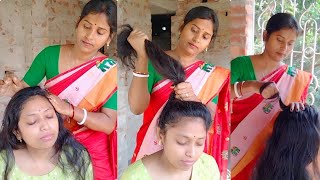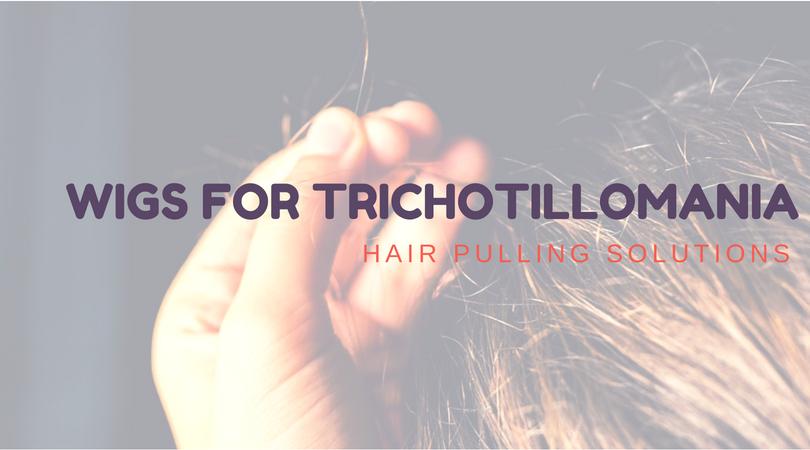Do You Suffer From Trichotillomania? - Everything You Should Know About The ‘Hai
 Do you pull your hair out? Well if you are thinking that you might have a problem you just might. There is a medical term for hair pulling known as trichotillomania and research into the causes and how the disorder is treated is still in the early stages.
Do you pull your hair out? Well if you are thinking that you might have a problem you just might. There is a medical term for hair pulling known as trichotillomania and research into the causes and how the disorder is treated is still in the early stages.
According to some research trichotillomania is a neuro-biological disorder common to many individuals. Though research is limited it is believed that genetics might be one reason you pull out your hair.
If you are unsure about what we mean by hair pulling, let me explain. Hair pulling is just that, yanking out every strand of hair on your head for comfort or pleasure or based on some sort of emotional state.
Some of us including my self do have sort of a ‘happy’ sensation when we find a knot or a lint ball and we are able to get it out.
If you are like me, you will not stop or give up nudging at your hair until the knot is removed once you find it. For me I know that it does not matter what circumstance I am in or what might be going on because the knot will literally ‘bug’ me until it is gone.
With that said just as I am* not sure if my insatiable need to remove knots is a part of the body of trich research and I am definitely not in the business of self diagnosis especially since the causes are not yet ironed out.
Why would a person pull their hair out?
Because research is so limited we only have a few answers to that question. One I mentioned which is that it is a way to self soothe.
Typically a person with TTM will do it at home or wherever they are most comfortable because it is soothing. According to Trich.org:
While the underlying biology is not clearly understood at this time, we do know that people with trichotillomania generally have a neurologically based predisposition to pull their hair as a self-soothing mechanism. The pulling behavior serves as a coping mechanism for anxiety and other difficult emotions.
If you pull your hair out when you are stressed or even anxious you could be suffering from trich but you will not know for sure unless you see a professional. Know that trich can start as early as the first year of life but the average age that is recorded for the onset of the disorder is age 11.
 What you should never assume
What you should never assume
Never assume that hair pulling is just a nervous habit and the individual will ‘grow’ out of it.
Trich goes way beyond what is considered a habit that should be ignored so it is important not to ignore the signs, even the small ones.
Another thing you should not assume is that only sad and depressed people have trich. There are perfectly happy people who have it as well. Of course depression and stress can be a part of an overall diagnosis but depression and sadness are not the only indicators for the disorder.
Do not assume that a person who hair pulls had some sort of early life abuse or trauma when they were young. As mentioned before trich can start as early as 1 and I have personally seen signs of it in my own son.
He pulls his hair out constantly and the only way to control the activity is to give him a hair cut. He has not been formally diagnosed with trich but the fact that he does this at such an early age is enough to raise some eyebrows.
What seems to be consistent among the young and old when suffering from trich is that the act of hair pulling is typically done during quiet time. When the person is distracted, reading, watching television or sedentary in some way.
It is important to take note of all the signs together without any bias so that you can have a complete picture about what is going on with you or your loved one. No assumptions!
What can you do if you suffer from trich?
From everything that I have read myself I am going to go out on a limb here and say that dealing with trich is not easy. You would think that just knowing your triggers would help a lot because then you can just stop when you recognize the behavior.
However for many people this is a struggle so there is a community website available where you can research and find professionals that deal with this sort of thing and can help you through it. The Trichotillomania Learning Center is amazing. There are books, DVD’s guides and access to professional resources that can be invaluable.
The center is a non profit organization devoted to ending hair pulling and other body focused repetitive behavior like skin picking or nail biting.
The center can help you determine what your triggers are and how to deal with them. The truth is this is a lonely disorder, only the person going though it knows just how it affects their life
Sufferers often hide the behavior and do not want to talk about it which is understandable. If you or someone else is dealing with trich point them in the direction of the learning center so they can get some help because it helps to have some support.
Do you think you have trichotillomania? Comment below.




